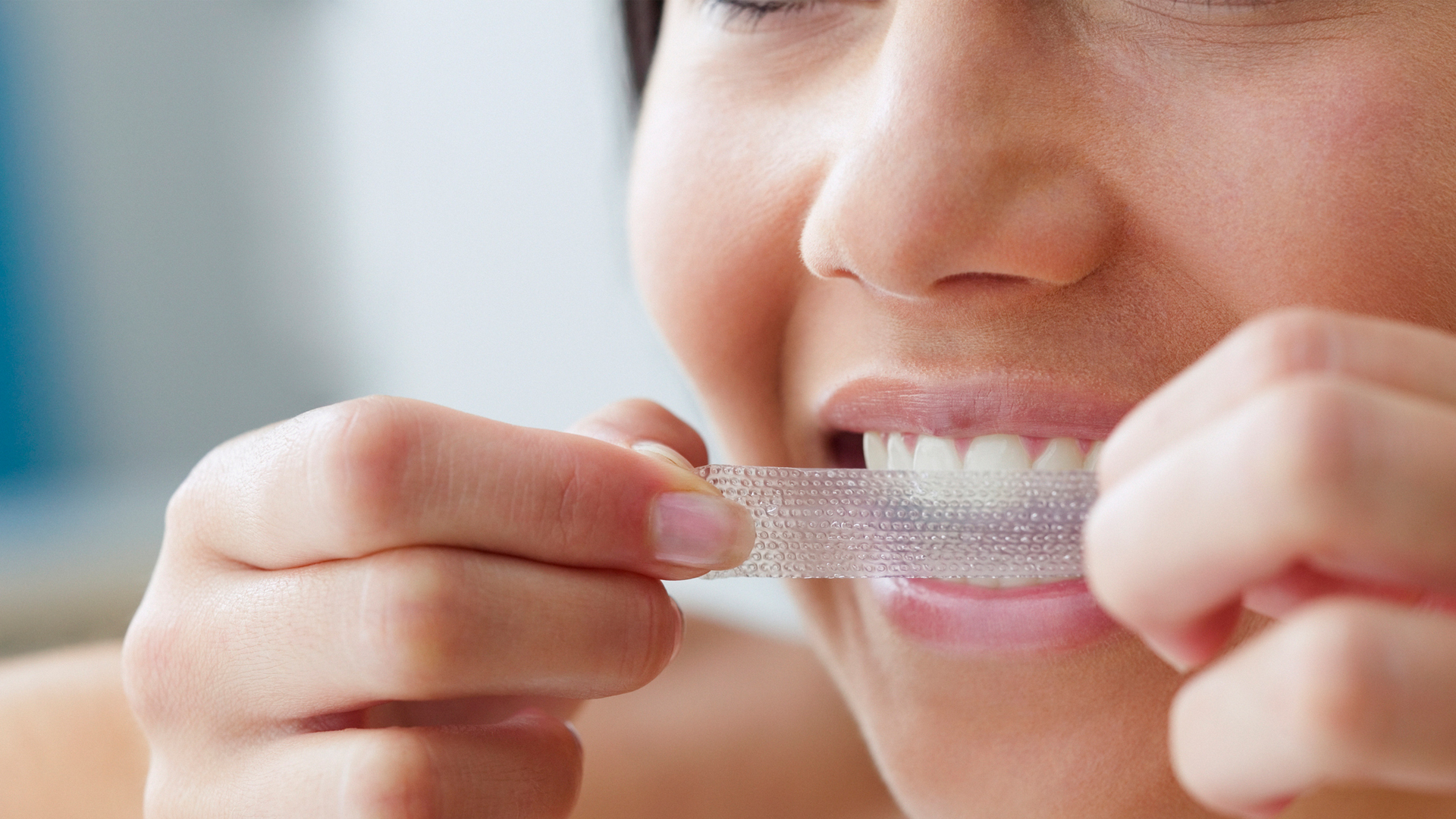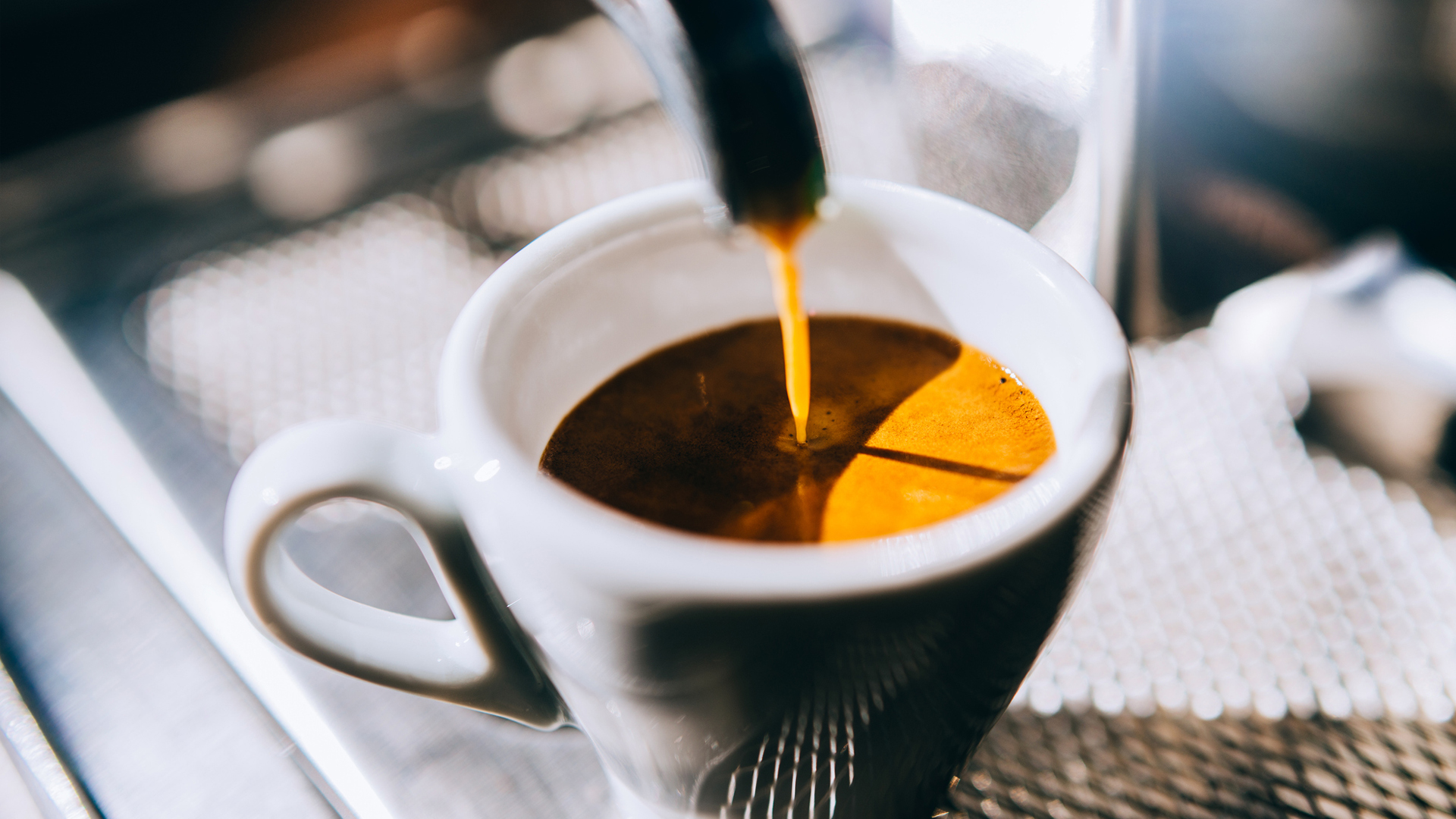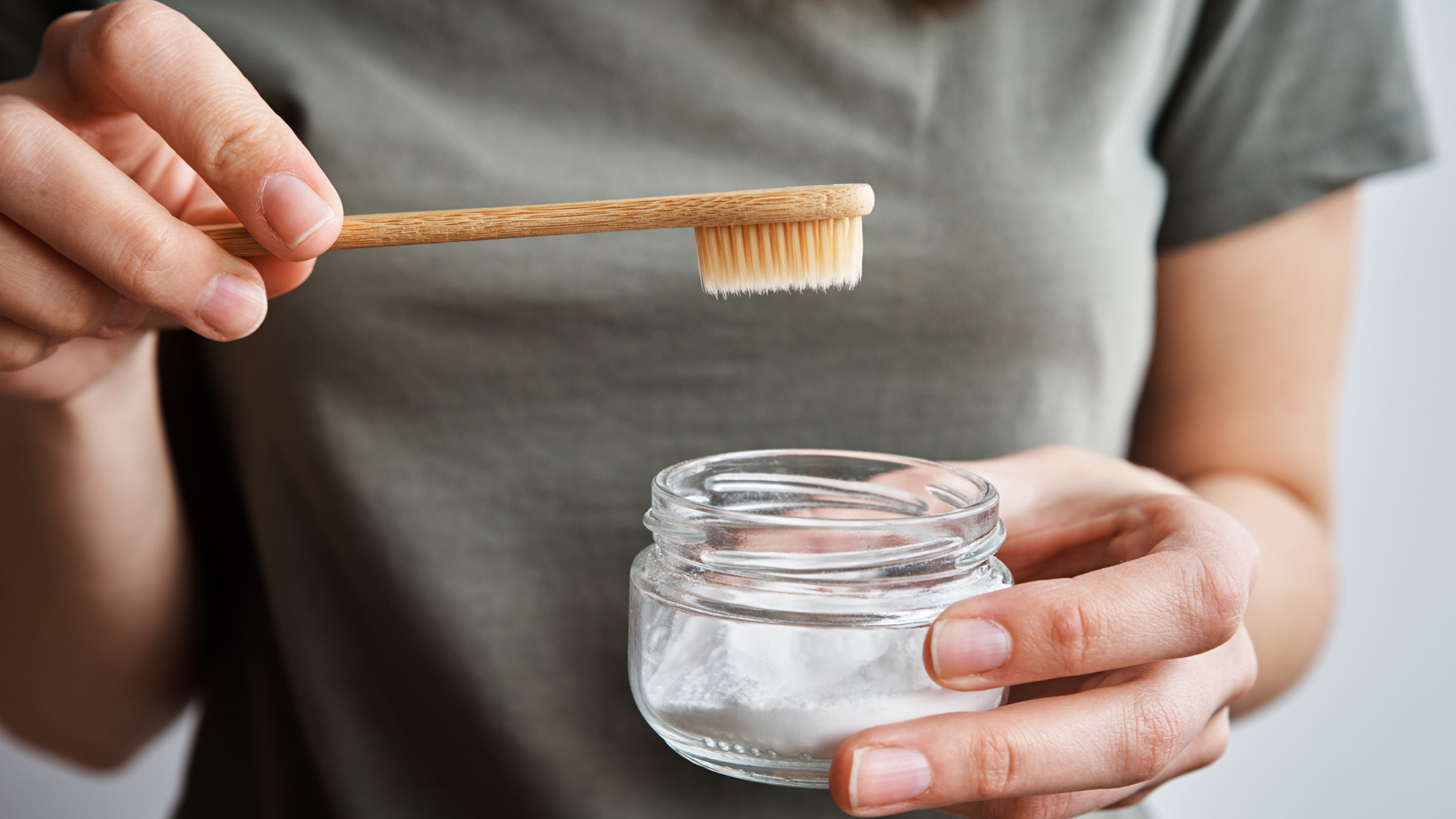How to whiten teeth naturally at home
Find out what works (and what doesn’t) when it comes to the ways to whiten teeth naturally

Want to whiten teeth naturally? The American Dental Association reported that when people were asked what they would most like to improve about their smile, the top response was whiter teeth. While there is information from the Journal of Evidence-based Dental Practice that professional teeth whitening with bleaching agents makes a difference, many people are looking to natural remedies to achieve a brighter smile. Have a look at our guide on is teeth whitening safe for more info on the impacts of teeth whitening on health.
Experts agree that maintaining oral hygiene is crucial for healthy, clean teeth. Our guide to the best electric toothbrushes makes brushing a breeze, and can upgrade your dental routine. You can also have a look at our guide on how to use an electric toothbrush for more information on how to use an electric toothbrush for the best results.
You’ll hear claims about ways to whiten teeth naturally, though often the evidence is lacking. Even worse, some methods could cause damage. It can be confusing, though help is at hand as we’ve consulted the experts and examined the science behind ways to whiten teeth naturally.
Dr Safa Al-Naher, the director and principal dentist at Serene Dental and Facial Aesthetics, says: “See a dental professional, and don’t take matters into your own hands.” A dentist can offer expert, individualized advice on your options to improve the appearance of your smile.
Plus, did you know that a natural smile is not pearly white but often a shade of yellow? Our teeth consist of three layers: enamel, dentin, and pulp. The middle layer, dentin, is yellow. If the enamel is thin, it can expose the underlying dentin. Find out more in our reference guide: are teeth naturally yellow?
Cut down on foods and drinks that stain teeth
If you’re looking to whiten teeth naturally, you’ll want to understand why teeth become discolored. There are intrinsic and extrinsic factors that affect the appearance of teeth, according to the American Dental Association. Intrinsic factors include your age and health conditions, which alter the color of teeth. In this scenario, a dentist would need to prescribe teeth whitening with a bleaching agent to change the color. Yet if there are extrinsic factors or stains on the surface, lifestyle changes can improve the appearance of your teeth.
“Avoid anything with strong colorings, such as tea, coffee, red wine, turmeric, various spices, and tomato sauces,” says Al-Naher. While it’s not realistic to eliminate these, you may want to limit your consumption.

After qualifying from King’s College London Dental School in 2011, Al-Naher immediately began her post-graduate learning in short-term adult orthodontics, facial aesthetics and cosmetic dentistry. She has also studied for an MSc in Restorative and Aesthetic Dentistry and achieved two post-graduate qualifications in this field.
If you’re not keen on giving up your favorite beverages, here’s a nifty trick. “Use a straw to consume colored drinks so they don’t stain your teeth,” says Dr Manrina Rhode, an aesthetic dental surgeon and owner of DRMR clinic. The straw reduces contact with staining ingredients and minimizes discoloration.
Have a look at our investigation into 'is milk good for your teeth' to see how drinking milk may help your dental health.

Quit smoking
Quitting smoking not only has a positive impact on your overall health but can also improve the appearance of your teeth, according to the American Dental Association. Achieving a whiter smile may be the motivation you need to quit.
Smoking results in discoloration for two reasons. The nicotine causes yellow staining when it comes into contact with oxygen. Plus, tar is a naturally dark substance that can result in discoloration.
The jury’s out on oil pulling
Through social media, you may have heard about oil pulling – though it has its roots in Ayurvedic folk remedies. The idea is that swilling oil around your mouth and spitting it out removes bacteria. Research from 2009 in the Indian Journal of Dental Research suggested that oil pulling could reduce plaque build-up. Yet a 2017 review in Dental Hypotheses concluded that the evidence behind oil pulling was lacking, as many studies involve small sample sizes or the method is flawed.
The American Dental Association does not endorse oil pulling due to the lack of data on its effectiveness and safety. If you’re worried about missing hard-to-reach spots you may want to try flossing as an alternative.
- Related: How to floss your teeth
Skip activated charcoal
There is hype about the use of activated charcoal to whiten teeth naturally, but does the science back this up? Activated charcoal is porous and can trap chemicals, according to Medline Plus by the National Library of Medicine. Yet experts have concerns about the safety of this method.
“There is more danger than benefit to using natural products, like strawberries, lemon, charcoal and baking soda. All of these work by removing the superficial stain on the teeth, initially making them look whiter. With continued use, they will remove the enamel. Once you lose enamel it doesn’t grow back. Under the enamel is dentin which is even more yellow and sensitive,” says Rhode.
If you struggle with sensitivity, have a look at our guide to what causes toothaches for more information.
Give DIY baking soda treatments a miss
The benefits of baking soda as a remedy to whiten teeth naturally have been touted, but what’s the evidence? Baking soda is supposed to scrub surface stains and result in a sparkling smile.
One 1998 study in the Journal of Clinical Dentistry showed that using toothpaste containing baking soda resulted in whiter teeth compared with toothpaste without it. Yet this is an old study, and there is no evidence about the effectiveness of DIY treatments.
Some experts have concerns that baking soda is abrasive, especially if used in excess. It could damage the teeth and risks being counterproductive since you could expose the underlying yellow dentin. Al-Naher advises looking for a “toothpaste with a slightly grainy consistency like a scrub for your teeth. Don't use any at-home scrubs. Use a toothpaste that is specifically designed for that purpose.”

Brush regularly
Don’t overlook the importance of everyday hygiene. The American Dental Association recommends brushing for two minutes twice a day to maintain a healthy smile. The accumulation of plaque can result in surface stains. Brushing your teeth regularly can remove this plaque and improve the appearance of your smile.
Be mindful that you’re not overdoing it. “A lot of people think that by over brushing, they're going to whiten their teeth but what ends up happening is they wear away the enamel and what's left is the yellow dentin beneath,” says Al-Naher.
If you’re looking for ways to whiten your teeth naturally, brushing your teeth correctly and limiting contact with substances that stain the teeth can help. Be aware that the evidence is lacking for certain methods and they could cause more harm than good.
Sign up for the Live Science daily newsletter now
Get the world’s most fascinating discoveries delivered straight to your inbox.
Louise Bond is a UK-based writer specializing in health and wellbeing. She has over eight years of experience in management within health and care and brings this passion and expertise to her writing. Louise has been published in The Guardian, Planet Mindful and Psychreg among others. She is at her happiest when she is out in nature, whether that’s on an invigorating hike or pottering in the garden.











